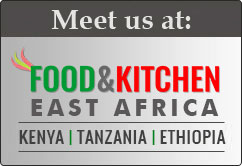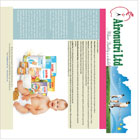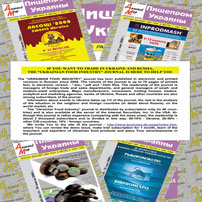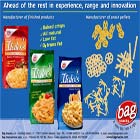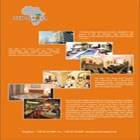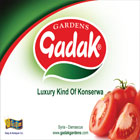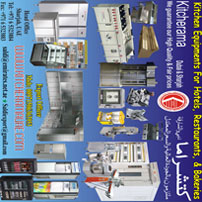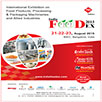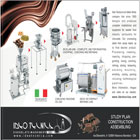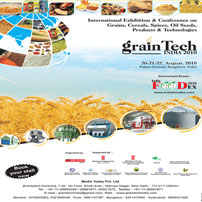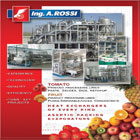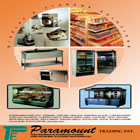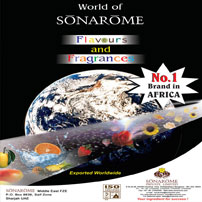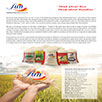

M a r k e t N e w s
Investment in Agriculture for Increased Production and Productivity in Africa
Posted on : Thursday , 15th October 2015
The Regional FAO field coordinator for MDG1C in Upper River Region has described value chain in agriculture as a prerequisite to boost the commercialization of agricultural products, and to attain sustainable livelihood development.
Dr Saikou E. Sanyang, an agriculturalist, noted that agricultural development depends on the simultaneous growth of farm-level production and productivity and the value chains to which it is linked.
The MDG1c project in URR is closely working with 35 communities taking the approach of crop production intensification and diversification. The MDG1c is sending the message of sustainability to the groups concern.
The office in URR is inculcating the culture of "save, invest and grow" strategy. This is only possible to save monies accrued from revolving funds, solidarity funds and other economic activity for continuity and sustainability.
These value chains, he said, include a wide range of small-and large-scale activities that involve supplying of farm inputs, processing, storing, distributing, wholesaling, retailing and exporting farm products.
In agricultural development and promotion, farmers have been regarded as the biggest investors in agriculture. Therefore, for any meaningful investment to have a positive impact on production and productivity, it must contribute to capital formation at farm-level.
He noted that investments made by farmers themselves are indispensable. Public investment in agriculture and private investment in agro-processing industries can complement farm-level investment, but cannot serve as substitute for the investment that needed to be made by farmers themselves.
Public investment is the second most significant contributor to farm-level capital formation, both directly through the provision of rural public goods and its effect on private investment.
In addition, investment in capital formation at farm-level, agriculture requires massive public expenditures including rural public goods.
Importantly, investment in rural public goods, such as education, infrastructure, healthcare and social services can generate outstanding benefits for the agricultural sector, and can boost its contribution to economic growth and poverty alleviation.
From empirical evidence, investment in research often associated with extension, is consistently found to be the most important driver of productivity growth in agriculture.
Furthermore, involving farmers to develop their own local base research capacity by generating indigenous knowledge system at farm-level in tandem with modern research can also contribute immensely to rural economy growth.
Primarily, small processing industries can play an important role in agricultural production and productivity; by producing standard and quality products.
The level of agricultural output, technologies and management practices used by farmers can serve as a unit of measurement of farm inputs and marketing, as well as storage and processing services.
Hence, development policies should focus on the creation of processing facilities, especially at the rural level, which is essential for creating agricultural value chains by linking farmers to suppliers on the one side and consumers on the other side, growing value chains by connecting more farmers to more suppliers and more consumers or by increasing the volume or diversity of products handled and improving value chains by making them more cost-efficient, principally by reducing post-harvest losses, and enhancing quality.
Certainly, farmers are the biggest investors in agriculture and rural development that cannot be fully achieved without considering the idea of "save, invest and grow" strategy to increase investment in agriculture.
Group savings in the form of cooperatives and/or household savings at rural level can serve as stimuli for agricultural investment in rural communities. What emerges from research findings is that farmers who cannot save cannot invest.
This implies that, if they cannot save, not only they cannot invest, but cannot have access to credit. Even if they secure loans from commercial or local financial institutions, farmers usually use the loans for immediate consumption and become more and more indebted.
Most importantly, savings is needed to create or generate assets (again through investment) which gives access to credit. In fact, in a situation of severe credit constraint, the saving and investment decision of agricultural household can hardly be separated since investment decisions are linked to its savings.
Furthermore, the importance of farmer organizations remains and will continue to be of great concern to donors, NGOs, and development projects since farmers are entry point to agricultural investment and rural development programmes.
Therefore, the existence of better and organized producer associations or cooperatives of small farmers will generally induce the enterprises to engage with small-holders farmers.
In conclusion, investment in agriculture must be viewed in the wider economic perspective in which agricultural development depends.
In designing policies and programmes for promoting investment in agriculture, it should be recognized that agricultural development depends on the simultaneous growth of agricultural production and the value chains to which it is linked.
Source : allafrica.com


